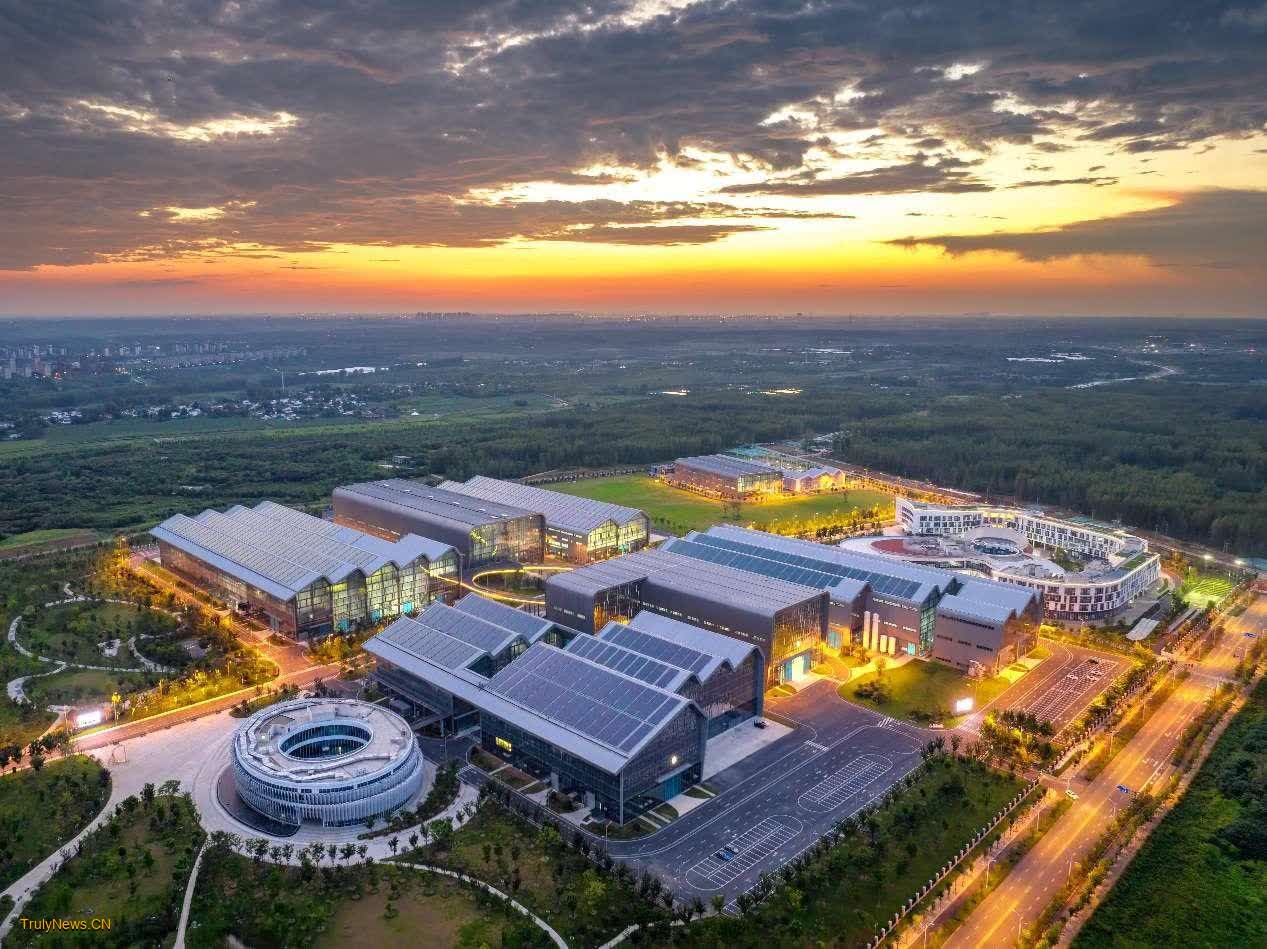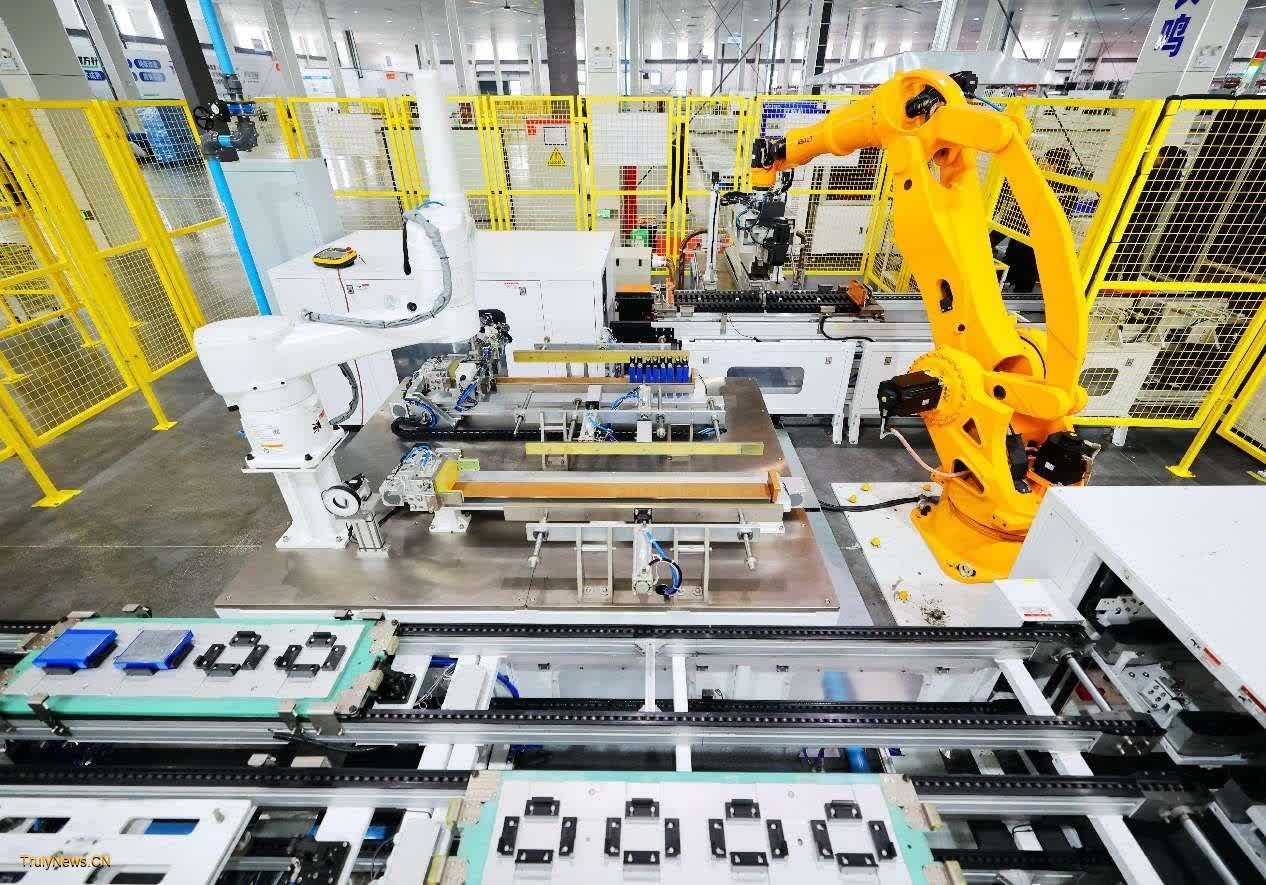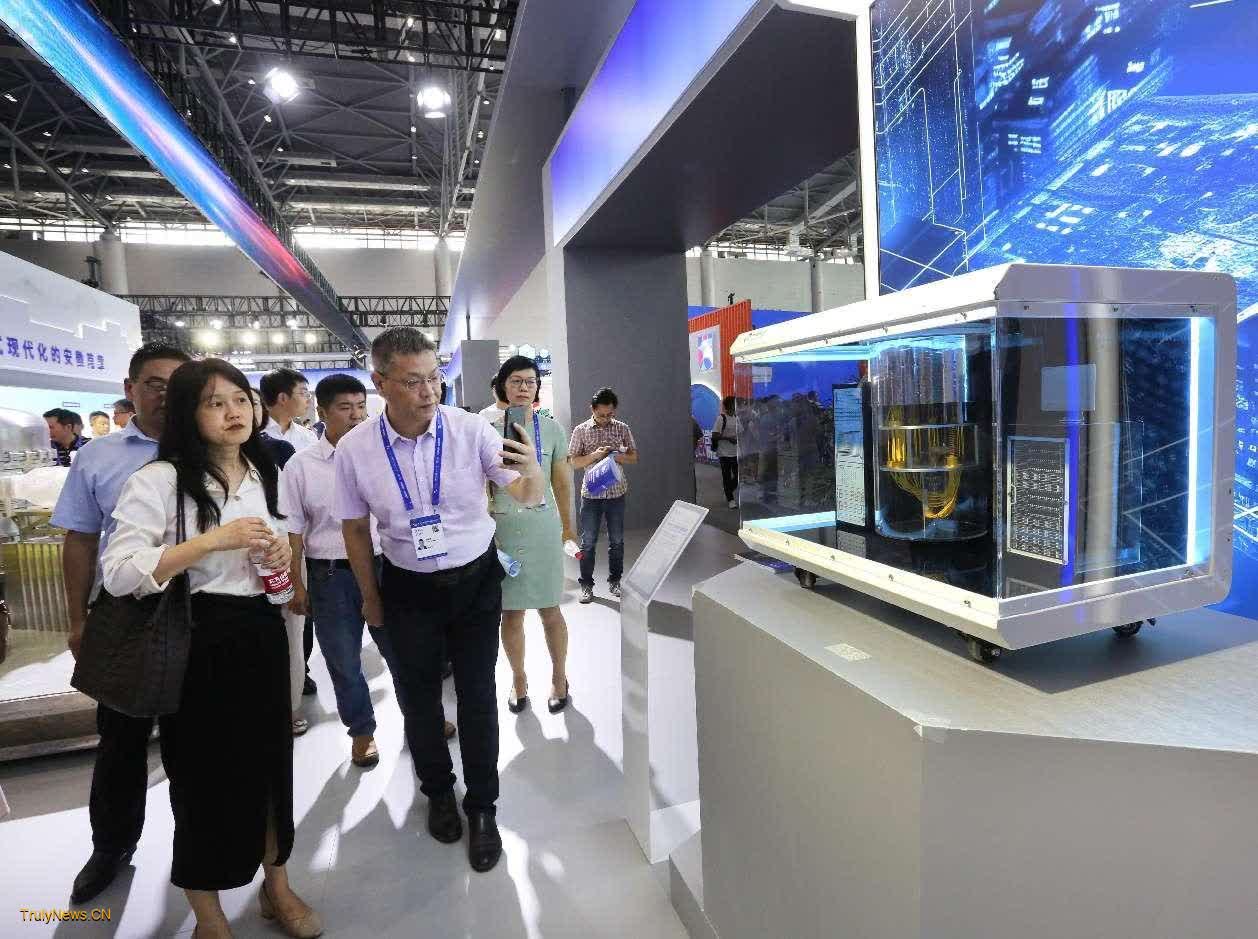Hefei, capital of east China’s Anhui province, has been making headlines with a series of innovation breakthroughs recently.
In the first quarter of this year, Hefei’s high-tech manufacturing sector saw a 42.4 percent increase in added value, up 7.5 percentage points year-on-year. Meanwhile, the production of new energy vehicles (NEVs) in the city grew by 28.8 percent, and the export of integrated circuits increased by 31.4 percent, signaling rapid growth of new quality productive forces.

Photo shows the Comprehensive Research Facility for Fusion Technology, a national large-scale scientific facility in Hefei, east China’s Anhui province. (People’s Daily Online/Luo Xianyang)
The Comprehensive Research Facility for Fusion Technology located in Hefei is expected to be completed next year; the chip “Xiaohong” independently developed by a Hefei-based research institution has been successfully delivered; the third-generation autonomous superconducting quantum computer, Origin Wukong, developed by a company in Hefei, has been accessed remotely by users from over 100 countries.
At the High Magnetic Field Laboratory of the Hefei Institutes of Physical Science (HFIPS), Chinese Academy of Sciences (CAS), in Science Island, a hub for nuclear fusion research in the outskirts of Hefei, stands a huge “iron can” as high as six meters.
“This is the Steady High Magnet Field Facility (SHMFF). It boasts world-leading comprehensive performance and internationally leading experimental conditions,” said Liu Jianguo, president of the HFIPS.
According to Liu, the facility is used to facilitate studies in physics, chemistry and material science, which not only promotes basic research, but also contributes to industrial innovation.
“For example, leveraging scientific facilities such as the SHMFF and the experimental advanced superconducting tokamak, also known as the “artificial sun,” a series of breakthroughs like proton therapy systems and new targeted drugs have been developed. Since the start of China’s 14th Five-Year Plan period (2021-2025), over 1,500 technology transfer agreements have been signed with enterprises,” Liu told People’s Daily.
Hefei is actively positioning itself as a hub for scientific and technological innovation by aligning the innovation chain with the industrial chain.

A robotic arm assembles batteries in an intelligent battery manufacturing workshop of a new energy vehicle producer in Hefei, east China’s Anhui province. (People’s Daily Online/Zhang Min)
The city has deployed 13 large-scale scientific facilities, established 35 high-level new research institutes, and co-founded 53 collaborative innovation platforms with leading academic institutions. On Science Island alone, over 450 companies have been incubated, and around 80 of them have been nurtured into national high-tech enterprises.
Nestled among lush meadows, the Second Advanced Manufacturing Base of Chinese electric vehicle manufacturer NIO looks like a serene garden.
In the workshops of the factory, industrial robotic arms work swiftly, automatically welding car frames. On the ground, transport robots busily move about, while elevators go up and down for faster assembly.
“We’ve achieved 100 percent paperless operations here, and one car rolls off the line every minute,” said Jiang Zhaojun, head of the factory.
According to Jiang, the production line is flexible and of high precision, offering more than 3 million configuration combinations across different models to better meet diverse consumer needs.
Hefei has built a complete industrial chain for the NEV industry that covers key components, vehicle manufacturing and the aftermarket, and developed the most advanced industrial cluster in China for new display technologies. It also leads the world in terms of photovoltaic inverter shipments.

A model of the third-generation autonomous superconducting quantum computer, Origin Wukong is exhibited at the 2024 World Manufacturing Convention held at the Hefei Binhu International Convention and Exhibition Center in Hefei, east China’s Anhui province. (People’s Daily Online/Wang Yushi)
In recent years, Hefei has accelerated the formation of strategic emerging industrial clusters. Its capability is growing stronger and stronger in the development of such industries as chip, display, NEV, AI-business fusion, integrated circuit, smart terminal, biomedicine and AI speech.
In an exhibition hall of QuantumCTek in Hefei, a leader in the commercialization for quantum information technology, a seemingly ordinary smartphone catches the attention of many. When a text is typed in the communication app of the phone, the phone’s screen displays an entirely different sentence.
“This phone is equipped with quantum key technology, which can encrypt texts, voices, images, and other information, making it valuable for secure communications,” said Tang Shibiao, vice president of QuantumCTek. The company holds the highest number of patents in quantum communication globally, with its products applied in sectors such as government services and finance.
China’s leading AI and intelligent speech company iFLYTEK has an AI experience center in Hefei, where various intelligent products and services are exhibited. For instance, it houses an industrial diagnostic system that detects equipment anomalies by “listening” to sounds, iFLYTEK’s large language model SparkDesk has been installed in nearly 60 million vehicles, and the company’s smart education services are used by over 50,000 schools across the country.
“We are leveraging our expertise in AI to provide intelligent support for people’s work and life,” said Han Yuchen, deputy general manager of branding and marketing at iFLYTEK.
An official with the Hefei Development and Reform Commission said that in the future, the city will continue to promote the synchronized growth of technological innovation and industrial development, injecting new momentum into the advancement of new quality productive forces.